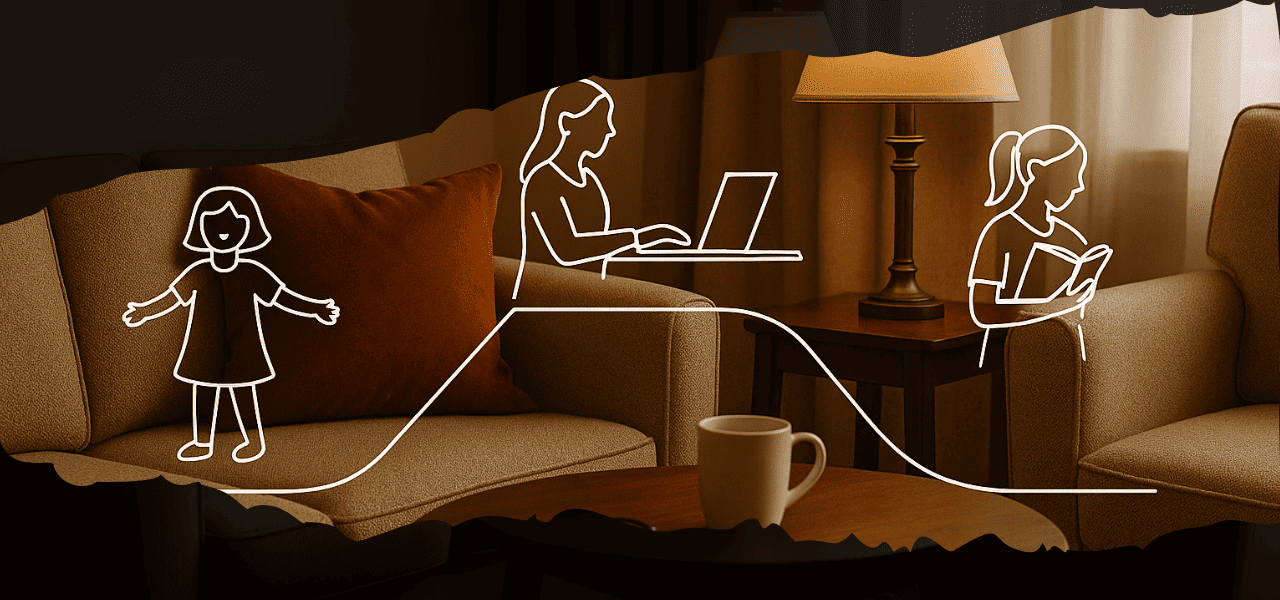Oksana Kuznetsova: Living by the Clock
Writer, traveler, sales executive… and composer. We sat down with Oksana Kuznetsova to find out how she manages it all.

Oksana, let’s start with the basics. Where were you born? What was your family like?
My father was a military officer, so we moved frequently. I was born in Vologda — and I owe that city the sense of order that still defines my life. I attended preschool near Murmansk. It was during a routine medical exam there that doctors discovered I had significant vision loss. Between the ages of three and five, I underwent several surgeries that stabilized my vision — and it remained steady for thirty years.
What kind of school did you attend? Anything special about it?
By the time I started school, we had moved to the Moscow region. At six, I enrolled in the second grade at a boarding school for blind and visually impaired children.
I finished my first year of university while completing my final year of high school. Our school offered a strong academic foundation. In 2004, I graduated with a degree in psychology and entered a PhD program at the Russian Academy of Sciences. I defended my dissertation in 2009.
But you didn’t pursue an academic career. Why not?
I would’ve loved to continue in research, and honestly, I still would. However, back then, academic work paid very little, so I changed careers and entered sales.
What do you do now?
Since 2014, I’ve been the Head of Sales at a construction company. Together with my team, we’ve weathered social and political challenges — and we’ve grown both professionally and financially.
What skills from your school days have been most useful in your career? Any subjects or teaching methods that stood out?
Our school’s teaching approach was almost one-on-one. No class had more than fifteen students. In mine, it was even “cool” to be a good student.
We followed a strict daily routine — wake-up and bedtime were set to the minute. After classes and lunch, we had clubs and extracurricular reading from 4 to 5 PM. When we returned books to the library, the librarian always asked us to summarize what we’d read.
From 5 to 7 PM, we did homework under a teacher’s supervision. We tackled written assignments first, trying to work at the same pace. Then the teacher read us textbook chapters for oral subjects.
We were constantly interacting with each other — something very different from mainstream schools.
Did you compete in academic contests or school Olympiads?
Not really. I wasn’t great at losing. I remember placing third in a regional poetry recitation contest — I was devastated. Later, I had a chance to win a tuition-free spot at university through a competitive intellectual game. We were neck and neck, but I lost by one point in the final round.
I received a 50% tuition discount for second place, but I was crushed. These days, I’d see the positives and move on — but back then, I mourned that loss for a whole evening. For me, that was a long time.
Eventually, I learned that striving to be the best can either break you or fuel you — it depends on how you handle it.
What extracurriculars did you have at school, and do they help you today?
Let’s start with a very specific skill: learning Braille. It’s incredibly brain-boosting. I’ve read studies showing it creates more neural connections than learning to drive! And since we learn Braille as kids, it boosts overall learning ability.
I also joined many clubs: chess, checkers, sports, drama, and choir. I learned massage, knitting, and cooking. I took extra math, studied political science, psychology, ethics, communication skills, and English.
It’s hard to pick a single skill that’s been most useful. The point is, we were developed holistically. And all those skills — especially self-discipline — help me today.
Sales are tough. Not everyone thrives in it, let alone leads a team. How did you succeed?
I live by a schedule. It makes everything easier. When I’m on time, I’m in control. When I’m late, I’m just tagging along.
Sales can be tough — if you think it’s about pushing something. But it gets easier when you realize people just want to buy something that fits.
Clients want to be heard. If I can offer a solution to their problem, we’ll close the deal. If I can’t, I tell them honestly and help them find another company. And when they need us in the future, they’ll come back to me.
Do your psychology skills help at work?
Definitely. They make communication easier. People are very different — some are outgoing, others reserved. Some talk down to you, others treat you like an expert.
But I always take responsibility for the outcome of the conversation — and for making sure the client’s issue gets resolved.
We hear you love to travel. Is it more about adventure or relaxation for you?
Traveling lets me live many lives. Sometimes I crave excitement; sometimes I just want to lie in the sun with an audiobook.
Wherever I go, I try to truly live in that place for a while — not just visit. I’m not into extreme sports, but I’ve sailed the open ocean, climbed mountains, swum under waterfalls, and flown over canyons.
I also love luxury — the contrast is fun. One day I’m a Cartier customer, the next I’m at the Social Welfare office. It keeps life interesting.
Do you approach travel the same way you approach sales?
I take structure with me everywhere. I love order, and I grumble when things get chaotic.
You also write books. Tell us more!
So far, I’ve written one novel and started a second. It’s science fiction — Is There Sex on Mars? In it, a Russian space lieutenant is sent to Mars to investigate the disappearance of previous expeditions. Turns out, the planet is inhabited — but its residents are experts at camouflage.
After a crash, the mental health of the Martian ruler’s husband is damaged. To save him (and herself), a local scientist transfers the Earthman’s consciousness into the Martian’s body. The human body is cryogenically frozen — but before he can return to it, he’ll face many trials. The sequel continues this story.
Where can readers find your books?
You can read them here:
And follow my channel where I share thoughts on books, other writers, and perfumes I’ve had the pleasure of smelling.
Is there anything else you’d like to share with readers?
I write songs!
Tell us more!
It’s not my main activity — maybe because I’m not a pro. I often get melodies and lyrics in my head, but it’s harder to turn them into full songs.
I can pick out a tune on the keyboard, but it takes time I don’t always have. The songs I’ve recorded involved collaboration with a musician. I’d sing the melody, we’d plan the arrangement — intro, harmony, ending. Then I’d rehearse and record in the studio.
I love singing, though I’m not overly ambitious about it. Still, I wanted results. In 2017, I won the All-Russian Film Song Competition named after Leonid Derbenyov. That’s enough for now — so I don’t try to record everything that comes to mind.
If I could be in two places at once, I’d write and sing much more.
